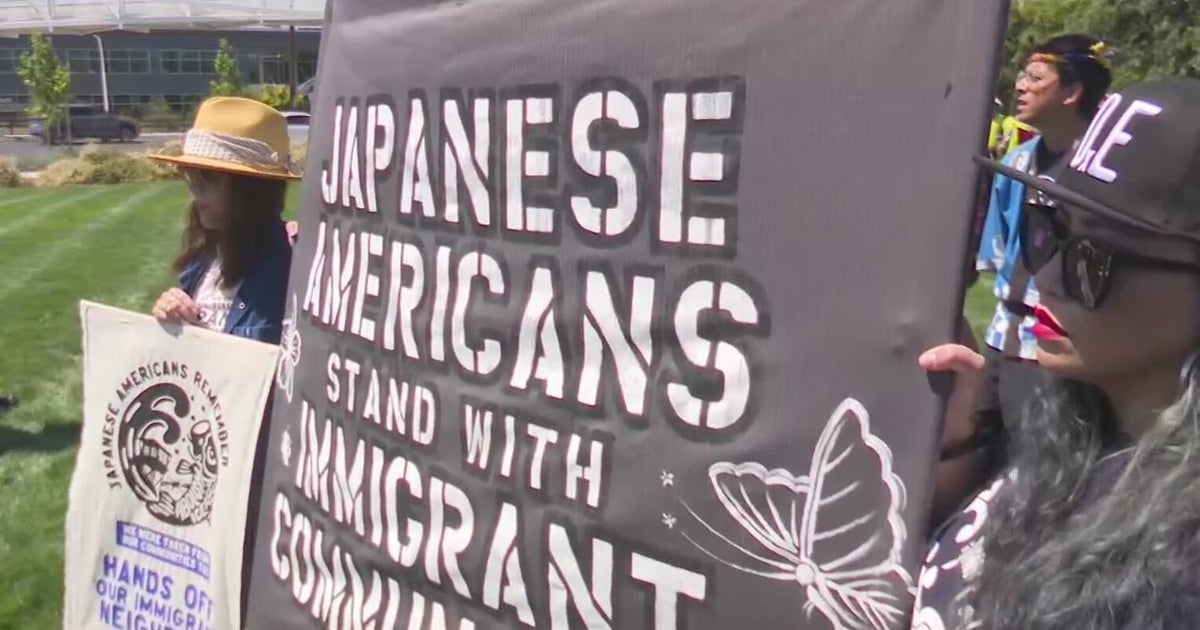Little-Known Report May Affect Your Car Insurance Rates
SACRAMENTO (CBS) -- A Northern California driver thinks a mistake on his record caused his car insurance to double.
When he learned of a little-known report we all have, called a C.L.U.E. report, he called CBS to investigate.
When Del Barrett's car insurance doubled, he learned his insurance company used something called a C.L.U.E. report to set his rates.
"I was absolutely clueless as to what a C.L.U.E. report was," Barrett.
CBS has learned insurance companies use C.L.U.E. or A-PLUS reports to look how many claims a policyholder has filed in the past seven years, to figure how much to charge.
>>Check Your C.L.U.E. Report
>>Check Your A-PLUS Report
"It's something that a lot of people don't necessary know about until it shows up on their report, they have a negative mark on their report," said Tully Lehman, Spokesperson for the Insurance Information Network of California.
You can pull your C.L.U.E. report once a year for free. When Barrett pulled his, he learned out of about $40,000 worth of insurance claims, almost $35,000 belonged to his brother, who was involved in two major accidents.
"I was surprised. That's why I couldn't believe. Somehow I've got to get this corrected," Barrett said.
Barrett thinks the mix-up happened because he was living with his brother at the time.
CBS contacted the company behind the C.L.U.E. report, LexisNexis.
They refused to talk to us about Del's case but said if someone brings a mistake to their attention, they'll look into it and get back within 30 days.
We then reached out to Barrett's insurance company, MetLife to see why they raised his rates. In a letter, they said his brother's driving history was "not included" in the policy. Instead, it was based on his own "speeding violation" and an "accident" Del had.
Barrett isn't quite sure he believes the explanation and thinks others should also check their C.L.U.E. reports.
"If you got a drastic increase in your rates, you better start looking at LexisNexis or A-PLUS," said Barrett.
You can check your C.L.U.E. or A-PLUS report for free once a year. If you find a mistake, you can dispute it with each agency.
Response from LexisNexis to CBS Questions:
- What should you do if you find mistakes on your CLUE report? How can you dispute it?
Upon review of a C.L.U.E. report, consumers have the right to dispute specific information that is contained in the C.L.U.E. report that the consumer believes is inaccurate. The LexisNexisRiskSolutionsConsumerDisclosureCentercan assist the consumer with any such dispute regarding, or with adding a statement to their C.L.U.E. report. We will initiate the dispute on behalf of the consumer with the reporting insurance company and notify the consumers of the results of the dispute within 30 days. Also, if an individual feels their C.L.U.E. report contains items they feel deserve an explanation, we will be glad to add their personal statement to the C.L.U.E. report and include it in future C.L.U.E. reports. To obtain a copy of their C.L.U.E. report, consumers may visit www.PersonalReports.LexisNexis.com or call 866-718-7684.
Additionally, consumers may obtain a free copy of their C.L.U.E. report every 12 months, subject to any specific state law requirements.
- How often are there mistakes on these CLUE reports?
On average, LexisNexis receives four disputes for every 10,000 C.L.U.E. reports we provide to our customers.
- How long does the dispute process take?
We verify the information with the reporting insurance company and notify individuals of the results within 30 days as required by law. Disputes may take less than 30 days depending on how quickly we get a response from the provider of the data.
- If a customer does not hear back from LexisNexis, does that mean the disputed errors will be dropped from their CLUE report?
Under the Fair Credit Reporting Act (FCRA), we are required to notify consumers the results of the dispute of their C.L.U.E. report no matter the outcome.
- When these reports are run, are they based on the person's name, address or license number?
C.L.U.E. reports are created based on a variety of data elements provided by the ordering insurance carrier, including name address and date of birth and on occasion driver's license number.
(Copyright 2012 by CBS San Francisco. All Rights Reserved. This material may not be published, broadcast, rewritten, or redistributed.)



